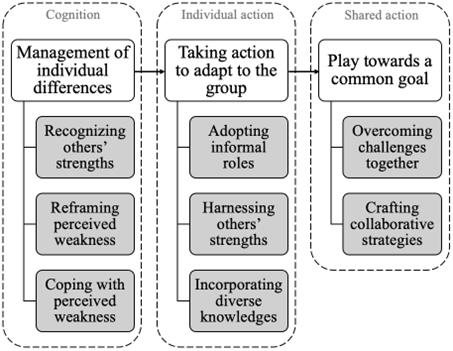The emergence of collaboration in serious games
An exploratory study
DOI:
https://doi.org/10.17083/ijsg.v11i3.739Keywords:
Serious games, Collaboration, Qualitative research, Problem-solving, Between-group variationAbstract
The use of collaboration as an approach to learning is pervasive both in work and education, and it is commonplace for serious games to employ collaboration. Collaboration in serious games may enhance learning and provide players with an engaging and enjoyable experience. However, collaboration is often taken for granted in research, neglecting to account for between-group variance and how collaboration emerges. This exploratory study aims to improve understanding of how collaboration emerges during play by investigating experiences and actions believed to foster collaboration. To achieve this, 69 students were studied across two separate sessions, one digital and one physical, in groups of 3-5. We observed both sessions and conducted 13 in-depth interviews. The findings of the study indicate that the emergence of collaboration relies on cognitive management of difference mindsets, individuals adapting to group strengths and weaknesses, and joint goal-directed play. We find that serious games can create unique ways for collaboration to emerge not found in non-game collaboration, which may positively influence learning under the right conditions. Our findings provide insight into some such conditions, but further research is needed to improve understanding of what these conditions are and how to reach them.

Downloads
Published
Issue
Section
License
Copyright (c) 2024 Håvard Almås, Fay Giæver

This work is licensed under a Creative Commons Attribution-NonCommercial-NoDerivatives 4.0 International License.
IJSG copyright information is provided here.